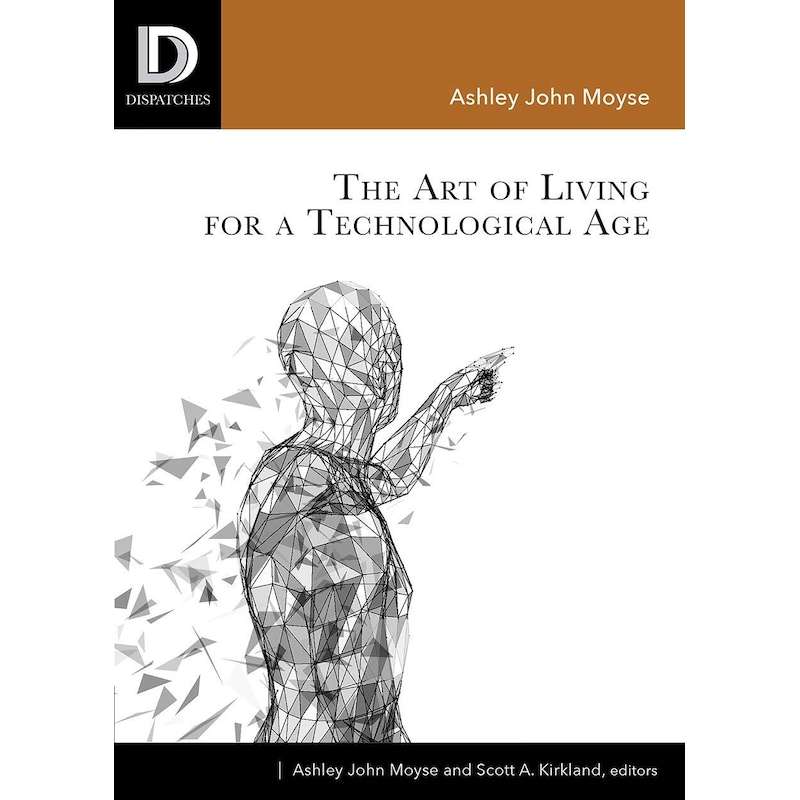


The Art of Living for A Technological Age sketches the crisis of our late modern age, where persons are enamored by the promises of progress and disciplined to form by the power of technology--the ontology of our age. Yet, it also offers a response, attending to those performative activities, educative and transformative social practices that might allow us to live humanly and bear witness to human being (becoming) for a technological age. As such, it is an exemplary example of the goals and outcomes of the Dispatches series, the individual volumes of which draw on diverse theological resources in order to offer urgent responses to contemporary crises. Authors in the series introduce succinct and provocative arguments intended to provoke dialogue and exchange of ideas, while setting in relief the implications of theology for political and moral life.
P>Review "In this boldly imaginative book, the author tackles the fundamental question of how humanity may learn to live and indeed flourish within a technologized world that carries ontological status, bearing the marks of human sin. Techno-ontology is, he argues, a form of betrayal of human identity that raises the possibility of active dissent, though without withdrawal. He proposes a renewed anthropology caught up in a labor of long-suffering that takes its richest meaning and resourcefulness from the Christian narrative. This is theological ethics at its best." --Celia Deane-Drummond, Director of the Laudato Si Research Institute and Senior Research Fellow, Campion Hall, University of Oxford"Technology is not a mere tool but an ontology, a way of being that frames how we see and handle everything. We must either reshape our use of technology or become transformed by it into the dehumanizing form of efficient mastery. A must read for anyone interested in humanizing our world today." --Jens Zimmermann, JI Packer Professor Theology, Regent College"This book has the remarkable philosophical virtue of helping to refine relevant questions rather than trying to give a definitive solution to the problems analyzed, which makes it a catalyst for new concerns and considerations and one of the best contributions of a text for readers interested in understanding what is next for the human being in the current technological age." --Hctor Velzquez Fernndez, Director of Centro Sociedad Tecnolgica y Futuro Humano, Universidad Mayor, Chile"In this very timely work, Moyse explains that our technological age runs deeper than we might think. Indeed, while attending to the impact of new technologies such as AI, CRISPR-Cas9 and virtual reality are significant for all of us to consider, what is perhaps more significant is the way we think and live today according to what he terms a techno-ontology. Our very reality is shaped by the technological model. If you are concerned about where all of this is going and want to be led by an expert in how to live well amongst it, do yourself a favour and read this book." --Michael Burdett, Assistant Professor of Christian Theology, University of Nottingham; author of Eschatology and the Technological Future"The Art of Living for the Technological Age is a timely book that addresses maybe the single most important question of our time: What does it mean to live humanely in a technological civilization? In contrast to traditional ways of seeing the world through the cultivation of imagination, social practices and the quest for wisdom, Moyse cogently demonstrates how technology is conforming us according its essence and powers which has resulted in an anthropological identity crisis." --Fabrice Jotterand, Assoc. Professor of Bioethics and Medical Humanities, Medical College of Wisconsin About the Author: Ashley Moyse is the McDonald postdoctoral fellow in Christian ethics and public life at Christ Church, University of Oxford. He is also a research associate at Vancouver School of Theology at the University of British Columbia. He is the author of Reading Karl Barth, Interrupting Moral Technique, Transforming Biomedical Ethics and has coedited several volumes, including Correlating Sobornost: Conversations Between Karl Barth and the Russian Orthodox Tradition (Fortress, 2016), Kenotic Ecclesiology: Select Writings of Donald M. MacKinnon (Fortress, 2016), and Treating the Body in Medicine and Religion: Jewish, Christian, and Islamic Perspectives. Scott A. Kirkland is an honorary postdoctoral research associate at Trinity College, University of Divinity, Melbourne.
We ship Australia-wide, including all major cities such as Sydney, Melbourne, Brisbane, Perth, Adelaide, Canberra, Newcastle, and the Gold Coast.
Same-Day Dispatch:
Orders placed before 12pm (AEST) are guaranteed to ship the same business day. Orders placed up until 1pm often still ship same day, but this is not guaranteed.
Estimated Delivery Timeframe:
• Metro areas in major cities like Melbourne, Sydney, Brisbane, and Canberra typically receive their orders within 1–2 business days.
• Regional and rural areas, or deliveries to states such as WA, SA, NT, and TAS, may take up to 10 business days, depending on location and courier performance.
Delivery times may vary slightly during peak periods, but we always aim to get your order to you as quickly as possible.
We offer a 30-day satisfaction guarantee on all purchases.
Returns:
Returns are accepted within 30 days of receiving your item. Items must be returned in their original packaging and in the same condition as when they were received. Change-of-mind returns are accepted only for items that are new and sealed. Items that are used or no longer in their original condition may not be eligible for a full refund.
Defective Items:
If your item arrives damaged or faulty, please contact us as soon as possible, and we’ll arrange a return or replacement where applicable.
Warranty:
We do not provide warranty coverage beyond the initial 30-day period. For any issues arising after this time, warranty claims must be made directly with the manufacturer in accordance with their terms.
Estimated Delivery Time Frame: 5 - 10 business days